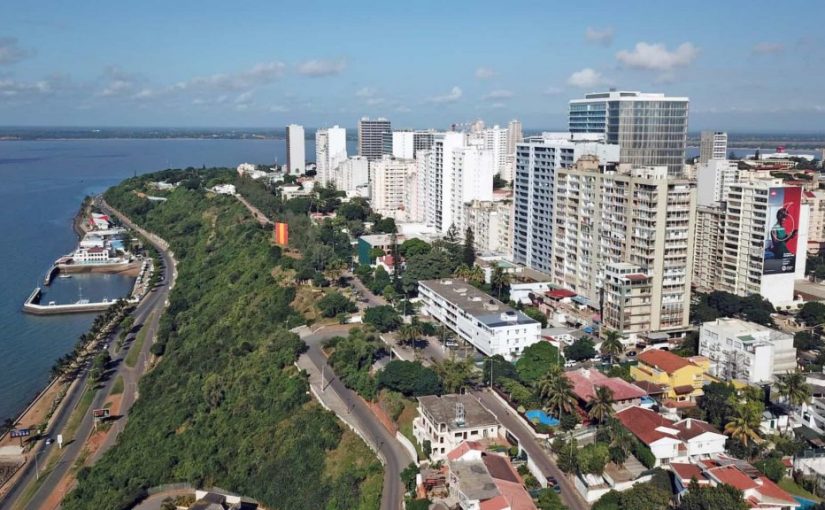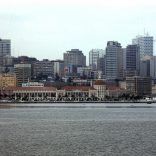Mozambique: Restructuring not limited to LAM - president
Mozambique: Business conditions improve for the first time in five months – Standard Bank PMI

FILE - For illustration purposes only. [File photo: Lusa]
- Output, sales, purchasing and employment all return to growth
- Strongest rise in new orders since last July
- Higher wages drive uptick in costs
Mozambique’s private sector economy returned to growth during February, latest PMI® survey data signalled, as business conditions strengthened for the first time since September last year. The uplift followed the sector’s worst performance for two years in January, supported by renewed expansions in several areas including activity, sales, purchasing and staffing.
Rising new business volumes thereby led to a degree of capacity pressure, as backlogs of work increased for the first time in a year. Meanwhile, greater hiring efforts played a part in driving input costs higher, as companies reported having to raise staff salaries.
The headline figure derived from the survey is the Purchasing Managers’ IndexTM (PMI®). Readings above 50.0 signal an improvement in business conditions on the previous month, while readings below 50.0 show a deterioration.
The headline PMI saw a near three-point surge in February, climbing from 47.8 in January ‒ the lowest for two years ‒ to 50.7, which was above the 50.0 neutral mark for the first time in five months. The reading signalled a slight improvement in the health of the private sector economy.
Mozambican businesses especially noted renewed uplifts in activity and new orders in February, ending respective three- and two-month runs of decline. Furthermore, rates of growth were the strongest since last July, amid reports of higher customer numbers, increased demand, stronger input purchases and greater productivity.
Expansions were nearly widespread by sector, with only construction registering contractions in output and sales. With demand growth restored, firms placed higher orders for inputs midway through the first quarter. This marked the first increase in purchases for six months, and one that was the sharpest in a year and-a-half despite being mild overall.
Nevertheless, companies experienced a fractional decline in their inventories, which extended the current sequence of depletion to five months.
After falling for the first time in two years, employment at Mozambican firms rose over February, with survey panellists signalling an increase in demand for workers to meet higher orders. Hiring growth was seen in all monitored sectors, led by agriculture.
Despite this, survey data signalled an increase in backlogs of work as business capacity was insufficient to complete new orders. The rise in backlogs was the first seen for a year, but marginal overall.
Meanwhile, firms continued to report a sharp improvement in their supply chains. Lead times shortened rapidly, albeit to a lesser extent than January’s recent high, with panellists mentioning that vendors had greater flexibility.
On the price side, February data indicated a renewed increase in input costs, which was relatively soft but still the quickest seen for seven months.
Higher costs were generally associated with a rise in wages, in turn due to greater hiring activity and elevated living costs.
Subsequently, selling prices increased further in February, albeit only to a mild degree.
After dropping to a four-month low at the start of 2024, business confidence ticked up slightly in February, highlighting a broad level of positivity towards output over the next 12 months. Surveyed firms generally predicted that sustained sales growth, increased productivity and expansion plans will support activity.
Comment

Fáusio Mussá, Chief Economist – Mozambique at Standard Bank commented:
“The Standard Bank Mozambique PMI rose to 50.7 in Feb, a seven-month high, up from 47.8 in Jan, after having remained below the 50 level since Nov. Except for supplier delivery times, which shortened, and stocks of purchases, which declined, the rest of sub-indices recorded an increase and printed above the 50.0 neutral mark.
“The February PMI results signalled output growth across the sectors of economic activity, except for construction, which recorded a contraction in both output and sales. Job creation was manifest across all sectors, led by agriculture.
“The PMI also signalled an improvement in business confidence, as captured by the future expectations sub-index, most likely reflecting the prospect of a further easing in monetary policy, following the 75 basis points (bps) policy rate cut to 16.5% by the Banco de Moçambique (BOM) in Jan, as well as expectations of the resumption of LNG investment in Cabo Delgado, despite reports of remaining security incidents in that province “We retain our views of prudent monetary policy easing this year, which implies financing conditions remaining tight. Unwinding favourable base effects for Coral South production ramp up, as well as persistent government domestic debt pressures and intermittent FX supply informs our forecasts of GDP growth decelerating to 4.6% y/y this year and 3.8% in 2025, from 5% in 2023.”
- To read, download the full Standard Bank Mozambique PIM, please click HERE.












Leave a Reply
Be the First to Comment!
You must be logged in to post a comment.
You must be logged in to post a comment.